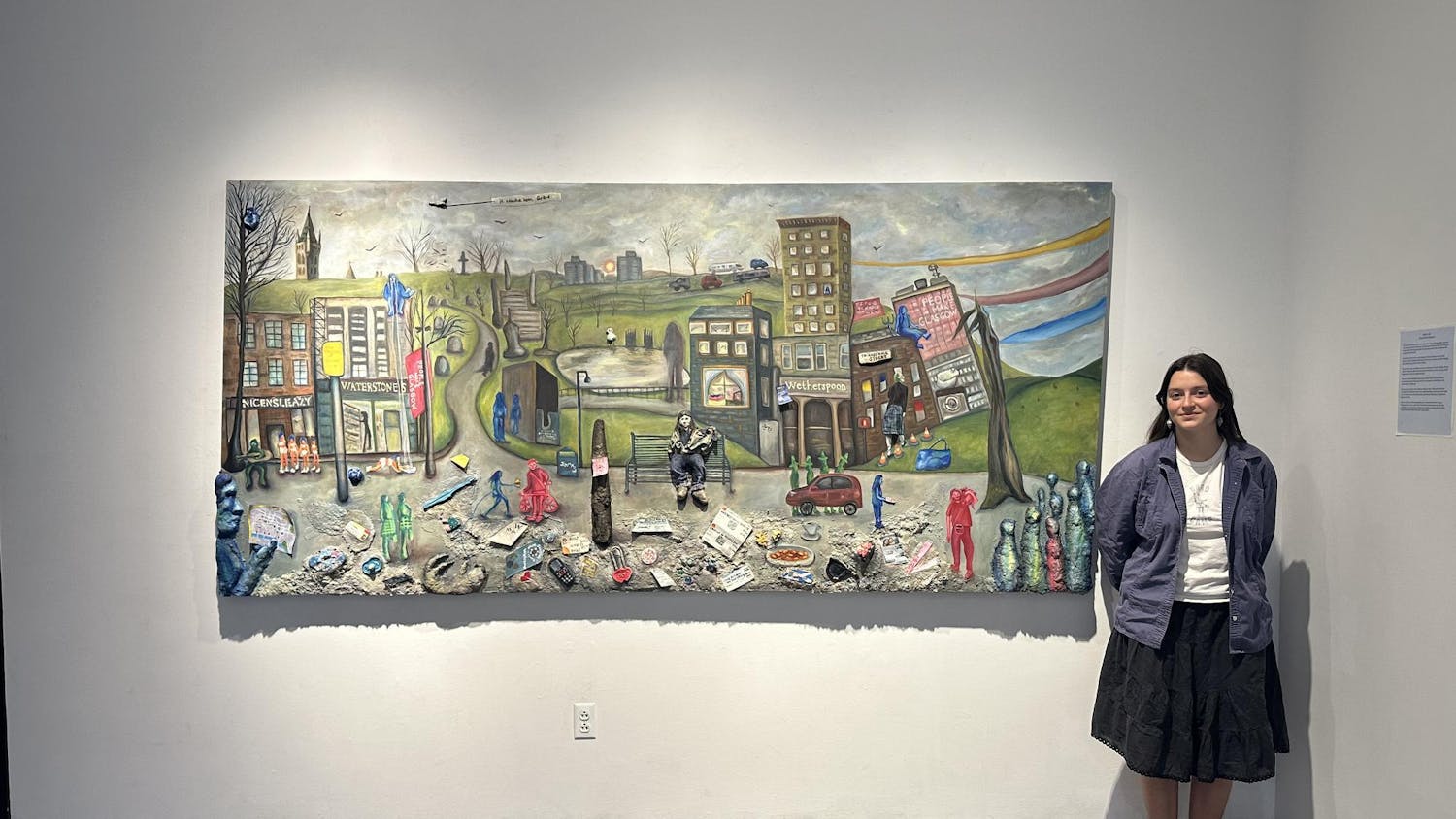A "banana" is how Haley Butler chooses to describe herself - "I'm yellow from the outside, but white from the inside." Butler is one of four teenage girls who were adopted from China and featured in the award-winning documentary "Somewhere Between," produced and directed by Linda Goldstein Knowlton '87.
Chronicling the lives and experiences of the four girls, the film opened in movie theaters this summer across the country and is currently being screened at the Cable Car Cinema and Cafe. At an evening showing at the theater Sunday, several cast and crew members, including Butler and Goldstein Knowlton, presented a brief Q&A and panel discussion following the screening.
Goldstein Knowlton, who concentrated in neuroscience at Brown, said she never imagined she would venture into the field of filmmaking. Though the art of storytelling had always held tremendous appeal, it was not until she became secretary of the American Film Institute in 1998 that Goldstein Knowlton said she realized she could tell stories through her films.
Her daughter, Ruby, whom she adopted from China in 2006, inspired "Somewhere Between," the first documentary she drafted on her own, she said. Goldstein Knowlton said she wanted to explore questions of identity and what it would mean for her daughter to be a teenager, particularly since "adolescence is tricky for everyone - a time when all you want to do is fit in and all you want to do is stand out."
To choose subjects for her film, Goldstein Knowlton reached out to several organizations, including Families with Children from China, and selected four girls, including Butler, to follow for three years. The girls, who ranged in age from 13 to 15, hail from Massachusetts, Pennsylvania, Tennessee and California. "I wanted the girls from all across the United States" to maintain "geographical diversity," Goldstein Knowlton said.
A senior at the Nashville School of the Arts, Butler said she was eager to participate in the film because it "was something I could do for the younger generation." Describing the film's themes as "universal," Butler said she hoped her story would continue to be a source of support and aid for girls in similar positions. "No matter what background you come from everybody has felt like they don't fit in at some point," she said.
Butler was one of the young girls in the film who set out to seek her biological family and Chinese roots. Though not all girls embarked on the quest to reach out to their biological parents, they were united in their exploration of complex issues such as race, identity, adoption and biology.
Erin Baker, one of the attendees at the event, said this was the second time she saw the film, first viewing it a few months earlier with her 16-year-old daughter whom she had also adopted from China.
Baker, who brought her parents to the event, said it was "personal and felt like (a) near identical situation." She said the documentary did a great job of addressing misconceptions of China's One-Child Policy, which resulted in the influx of abandoned babies, particularly young girls. Baker said she would recommend the film to everyone, adding that it was a production that would reverberate not just with families of Chinese adoptees, but with the international adoption community in general.
"Somewhere Between" draws in people of different backgrounds - even those unfamiliar with the experiences of adoption. Though its exploration of multiple issues negates the presence of an underlying theme that ties everything together, the film is nonetheless successful in its emotional appeal. Goldstein Knowlton said she didn't have a particular question or set of ideas when she began filming but instead "threw out all fishing lines" in order to be open to whatever direction the documentary took.
Goldstein Knowlton added that she has been thrilled by the response the film has generated from different communities and said she hopes it starts conversations about the different types of families in place today - especially since adoption is a common but yet-to-be-normalized phenomenon. "We're all in this planet together, and the more we can do to understand and respect each other is important."
ADVERTISEMENT




